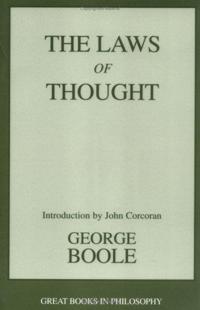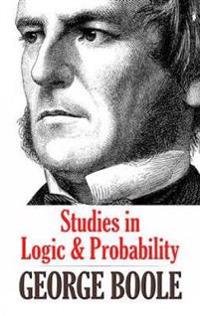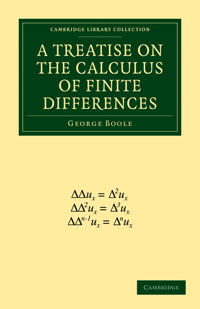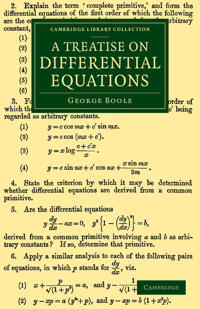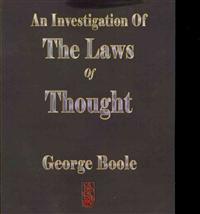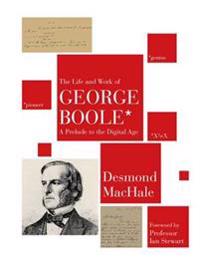The Laws of Thought (Pocket)
avGeorge Boole, John (INT) Corcoran, George Boole
ISBN: 9781591020899 - UTGIVEN: 2003-07This groundbreaking work on logic by the brilliant 19th-century English mathematician George Boole remains influential to this day. Boole's major contribution was to demonstrate conclusively that the symbolic expressions of algebra could be adapted to convey the fundamental principles and operations[...]
Studies in Logic and Probability (Pocket)
avGeorge Boole
ISBN: 9780486488264 - UTGIVEN: 201206Authoritative account of the development of Boole's ideas in logic and probability theory ranges from "The Mathematical Analysis of Logic" to the end of his career. "The Laws of Thought" formed the most systematic statement of Boole's theories; these studies, incomplete at the time of his death, wer[...]
A Treatise on the Calculus of Finite Differences (Pocket)
avGeorge Boole
ISBN: 9781108000925 - UTGIVEN: 2009-07Self-taught mathematician and father of Boolean algebra, George Boole (1815-1864) published A Treatise on the Calculus of Finite Differences in 1860 as a sequel to his Treatise on Differential Equations (1859). Both books became instant classics that were used as textbooks for many years and eventua[...]
A Treatise on Differential Equations (Pocket)
avGeorge Boole
ISBN: 9781108067928 - UTGIVEN: 2014-08The need to support his family meant that George Boole (1815-64) was a largely self-educated mathematician. Widely recognised for his ability, he became the first professor of mathematics at Cork. Boole belonged to the British school of algebra, which held what now seems to modern mathematicians to [...]
An Investigation of the Laws of Thought (Häftad)
avGeorge Boole
ISBN: 9781603861250 - UTGIVEN: 2008-07The Life and Work of George Boole (Inbunden)
avMacHale Desmond
ISBN: 9781782050049 - UTGIVEN: 2014-09This book, aimed at the general reader, is the first full-length biography of George Boole (1815 - 1864) who has been variously described as the founder of pure mathematics, father of computer science and discoverer of symbolic logic. Boole is mostly remembered as a mathematician and logician whose [...]

